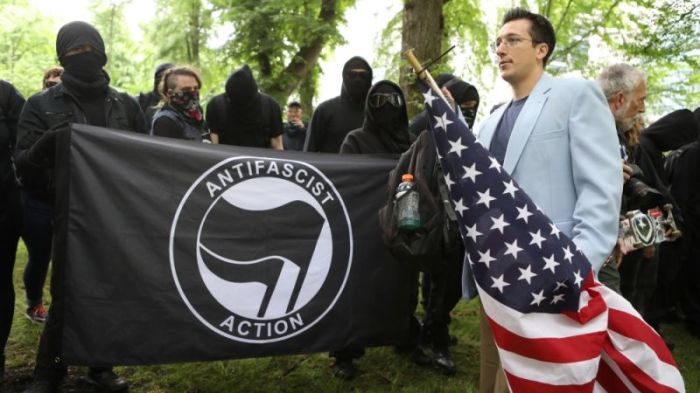The Rise of Post-Religious Right, Post-Religious Left Harming America, Says David French

The rise of both the post-Religious Right and the post-Religious Left is a detriment to political discourse in the United States, according to notable conservative Christian writer and National Review contributor David French.
Albert Mohler Jr., president of The Southern Baptist Theological Seminary in Louisville, Kentucky, interviewed French for a Thursday podcast titled "American Conservatism, Past, Present, and Future: A Conversation with David French" that was posted online.
During their conversation, French spoke about his concern about the current direction of conservative ideology in America, issuing a warning about what he called the "increasing secularization of conservatism."
"A lot of people have been longing for the end of the 'Religious Right,' and the belief that the post-Religious Right that would emerge would be more moderate, would be more civil, would be more reasonable, would be more rational," said French.
"The reality is that the post-Religious Right is not more of those things. The Post-Religious Right is more contentious, the Post-Religious Right is more obsessed with politics, the Post-Religious Right has become more intolerant."
French referenced Peter Beinhart, contributing editor for The Atlantic and a political science professor, who wrote a recent piece that noted that the "Post-Religious Left" is also worse than its predecessor.
"The rise of the Post-Religious Left has increased intolerance," continued French. "These post-religious political movements are very absorbed in politics."
"It's the politicization of everything. Its politics as religion. [They] have been excessively neglectful of culture and extraordinarily intolerant. And I think that's something that's partly responsible for the rise of negative polarization in the United States."
Mohler agreed with French's assessment, adding that modern American conservatives and liberals should take heed of what "secular conservatism" and "secular liberalism" looked like in twentieth century Europe.
"Just look at Europe in the twentieth century. It's not that we have to scratch our heads and wonder what that looks like," Mohler said. "It's horrifying."
French went on to state that he believed American culture was "relearning some hard lessons right now," among them being that "the abandonment of God has negative cultural consequences."
"It creates holes in the human heart that politics cannot fill," added French. "And then politics just gets more intense and more divisive and more angry as it struggles and strives to do what it cannot possibly do."
In recent times, many have noted an apparent decline in the state of political civility in America, with Political Science Professor Marc Hetherington of the University of North Carolina Chapel Hill telling The Christian Post last month that it was likely the worst it's been in 125 years.
"I suspect that, based on what we know and what we can fill in, this is the highest level of partisan hatred that we've probably had in 125 years," stated Hetherington to CP in October when commenting on a study he did for a new book.
"Although we only have the data to 1980, I'm sure with almost complete certainty, that this goes back a lot farther."
Outgoing Ohio Governor and former Republican presidential hopeful John Kasich commented earlier this year that he believed a decline in religious belief was fueling a rise in incivility.
In an interview with NBC's "Meet The Press" that aired back in August, Kasich commented on a host of issues regarding the current political climate.
"Loving your neighbor, elevating others sometimes in front of yourself, putting yourself in other people's shoes. And when we don't do that, we lose the essence of our country," said Kasich at the time.
"When my father and my uncle talked about the Great Depression, everybody pulled together and what we're seeing now is people pulling apart rather than coming together."




























